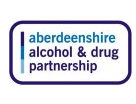Crack (white)
What is it?
Crack (a smokeable form of cocaine) is a powerful stimulant drug that increases the body temperature, heart rate and respiration. It also constricts the blood vessels (narrows them). It generally comes in small white or creamy/yellowish ‘rocks’ and is usually smoked in a pipe, glass tube, plastic bottle or in foil. Although often bought in rock form, some people will "wash up" or "cook" powder cocaine into crack themselves. The purity of crack varies widely, which can make it difficult to judge the dose.
Short-term effects
The effects depend on how much is consumed. Individual factors such as body weight, gender, the strength of the drug, mood, physical and mental health, how you take it, where you take it and whether or not it is mixed with other drugs including alcohol also have an impact.
As with any drug, users should test the strength of it by using a small amount first.
It produces an intense, short-lasting euphoric feeling and may make users feel more alert, focused and responsive to stimulation. It can cause feelings of restlessness, anxiety and paranoia. Coming down from crack may be harsh.
Long-term effects
Long-term use of crack can result in physical and psychological dependence. There is also a risk of vein damage or contracting HIV/hepatitis C if it is injected, particularly if injecting equipment and paraphernalia are shared. Heavy crack use may also result in psychosis – experiencing visual and auditory hallucinations
Prolonged use may also result in loss of the sense of smell, nosebleeds, problems with swallowing, hoarseness and an overall irritation of the nasal septum, which could result in a chronically inflamed, runny nose.
Ingested cocaine can cause severe bowel gangrene, due to reduced blood flow.
Weight loss and malnourishment are also common.
Lips may become blistered, bruised or cracked from being pressed against a hot pipe. Users may also develop breathing problems, including a persistent cough, which may result in lung damage. If you inject crack you are at serious risk of vein damage.
Harm reduction
If you are determined to inject, snort or smoke drugs, never share needles or paraphernalia such as spoons, water, filters, straws, bank notes, tooters or pipes with anyone, even if the person is your partner. This will reduce the risk of contracting hepatitis B, C and HIV.
Rotate your injecting sites to minimise vein damage and always use sterile needles and paraphernalia to reduce the risk of infection.
Avoid using heroin to make the comedown from crack easier as this could lead to a heroin addiction.
Avoid combining alcohol with cocaine/crack. This produces a substance called cocaethylene which is toxic to the liver.
The law
Crack is a Class A drug.
Penalties for possession are up to 7 years in prison and/or an unlimited fine. Supplying crack carries penalties of up to life in prison and/or an unlimited fine.
Driving while under the influence of drugs is against the law and can lead to a heavy fine, disqualification from driving and even a prison sentence in some cases.
If you are convicted of a drug-related offence it can stop you travelling to certain countries and affect the types of jobs you can apply for.
If you are using crack (or any other substances), are worried about someone else’s use or would just like to know more, please contact us for more information








